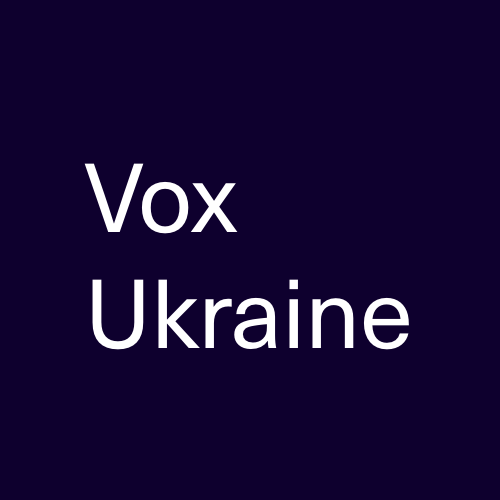On November 11, Vox Ukraine held the “Territory of Changes” conference. The event brought together caring citizens and experts to discuss ideas that can transform the country and help explore ways to implement them.
To participate in the “Territory of Changes” conference, attendees were required to propose an idea that could improve the lives of Ukrainians. The organizers collected ideas through a registration form for the event, deliberately avoiding strict criteria to gather as many perspectives and concerns as possible. This approach paid off. The team received over 200 submissions, from which Vox Ukraine analysts selected ten ideas to be discussed at the conference with experts and attendees. The authors of all other ideas were given tickets to the event.
The conference was opened by Maksym Skubenko, CEO of Vox Ukraine and Junior Sergeant of the 5th Separate Assault Kyiv Brigade. He expressed gratitude for everyone’s commitment to change, their efforts, and their ideas and highlighted Vox Ukraine’s readiness to support their implementation. 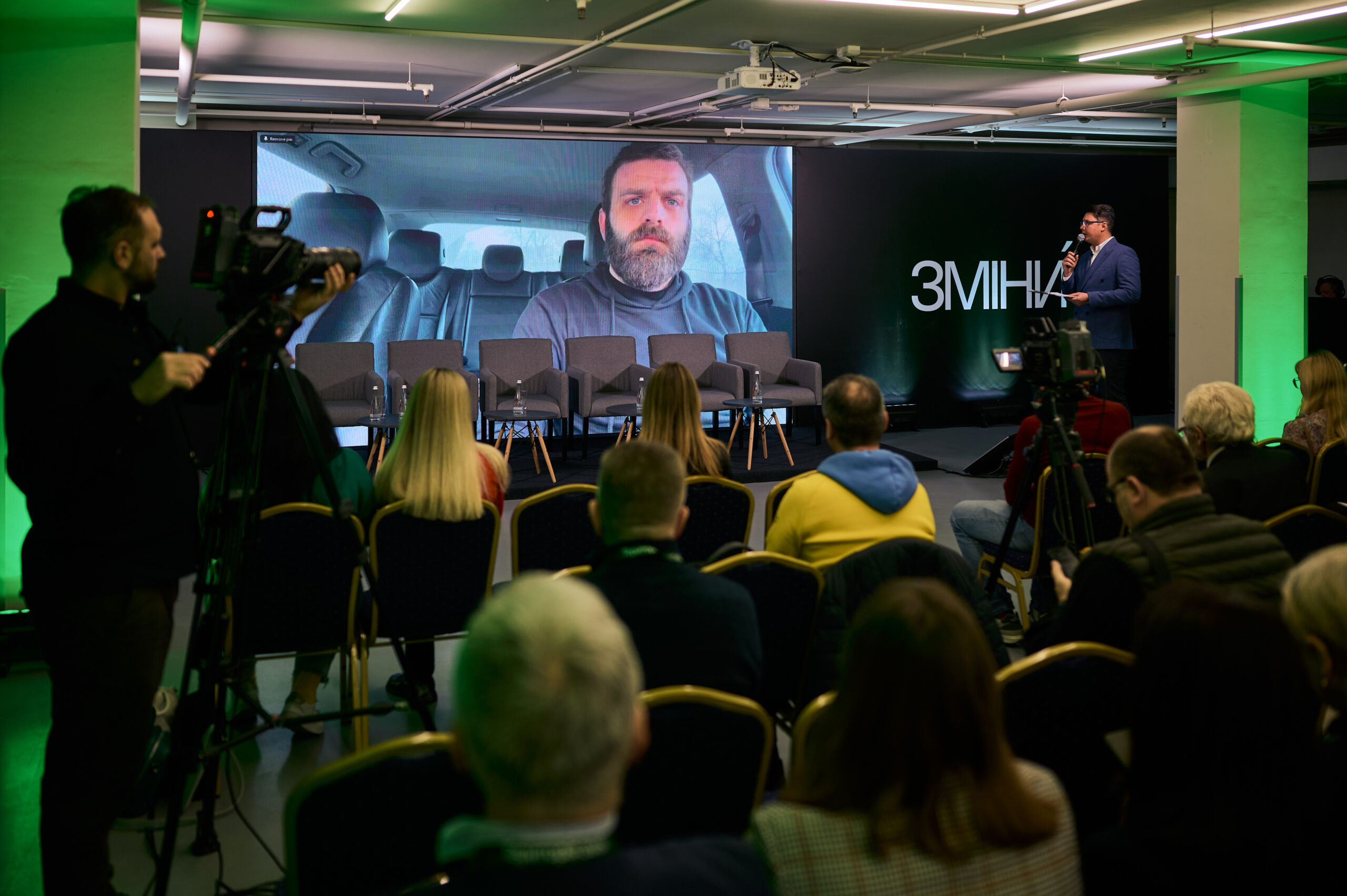
Maksym Skubenko, Executive Director of Vox Ukraine
“An idea is usually something simple. But from this simplicity arise space stations and scientific inventions that revolutionize the world around us. That’s why we’ve taken this first step. Our idea has evolved into the first ‘Territory of Changes’ conference, dedicated to doing something meaningful with your ideas. That ‘something’ is helping you shape them, crystallize them into a coherent structure, and develop them further,” Maksym noted in his opening remarks.
The first panel, “Territory of Ideas,” brought together representatives from civil society, education, science, business, and government to hear and evaluate the first five proposals. This panel addressed several key topics: combating corruption, access to healthcare, barrier-free environments, ecology, and education. 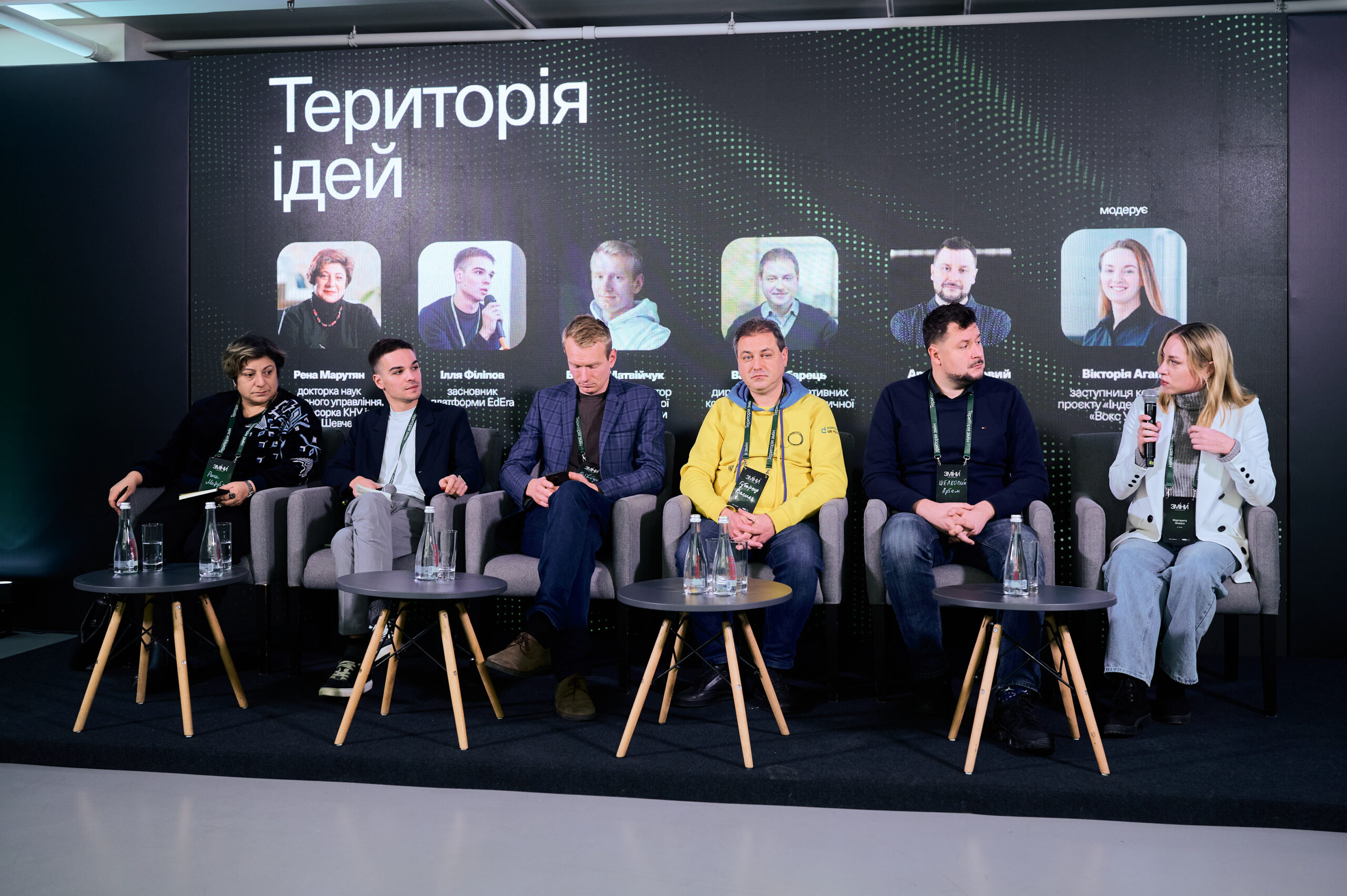
Experts of the first panel: Rena Marutian, Ilya Filippov, Bohdan Matviychuk, Vasyl Hubarets, Artem Shelkovyi, and Margarita Zhyvago, who presents the first idea
The ideas were evaluated by Rena Marutyan, Doctor of Public Administration and Professor at Taras Shevchenko National University; Illia Filipov, founder of the EdEra platform; Artem Shelkovyi, General Producer of Regional Broadcasting at Suspilne; Vasyl Hubarets, Director of Corporate Communications at Darnytsia Pharmaceutical Company; and Bohdan Matviichuk, General Director of the Directorate for Targeted Social Support at the Ministry of Social Policy. The panel was moderated by Viktoriia Ahapova, Deputy Head of the Reform Index project at Vox Ukraine.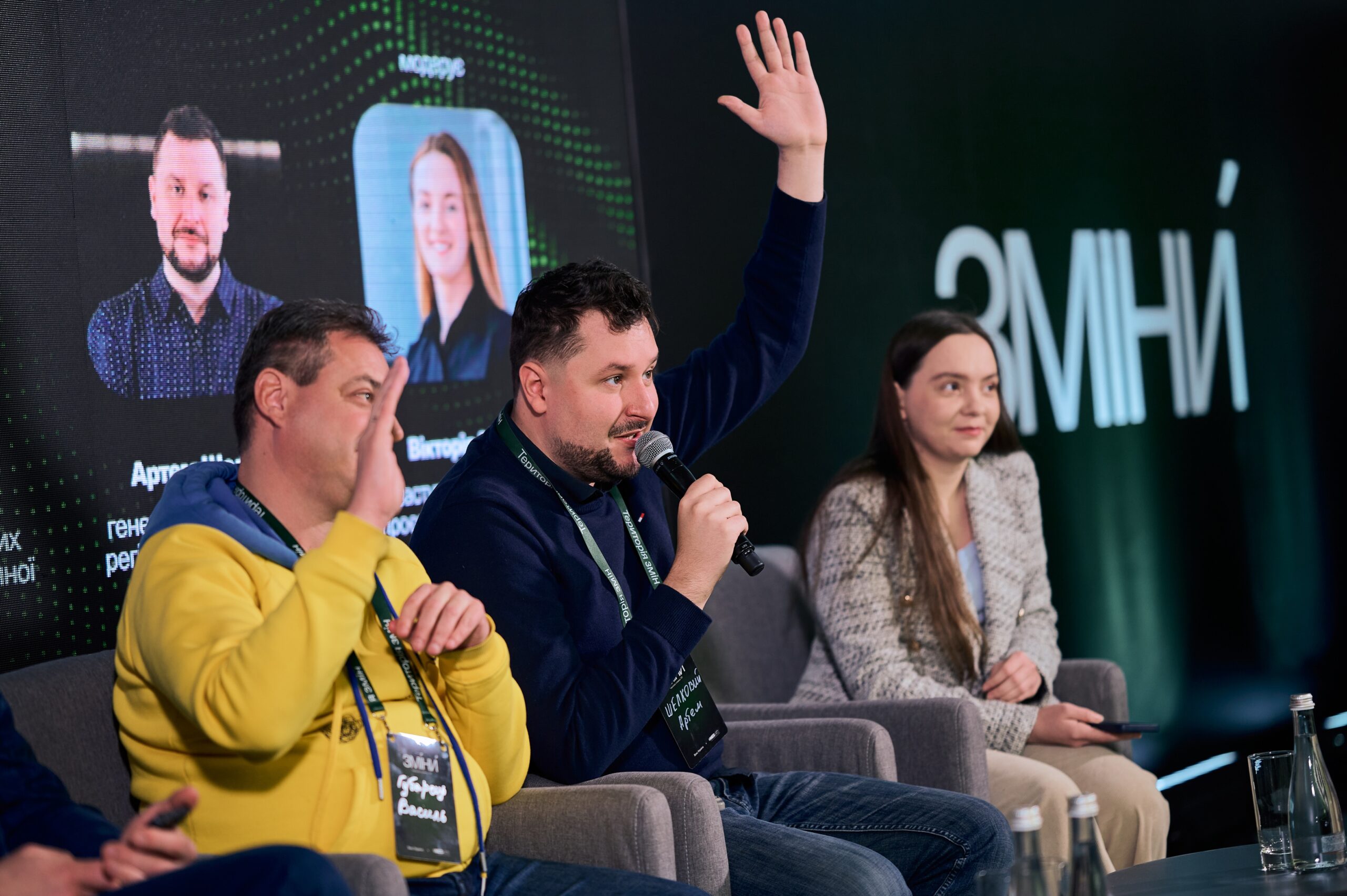
Vasyl Hubarets, Artem Shelkovyi and Alina Tropynina
Participants presented their ideas in brief 210-second pitches, during which they had to outline the core concept, its innovativeness, feasibility, and specific impact on Ukraine. After each presentation, the experts provided commentary, asked questions about the practicality, innovation, and potential risks of the ideas, and offered recommendations for improvement or implementation.
The five ideas during the first panel were:
- Public Platform “Anti-Corruption Rankings”. Author: Marharyta Zhyvaho, Head of the Media Relations Department at NABU.
- Mobile Diagnostic and Laboratory Complexes. Author: Tetiana Tymchenko, Journalist at the information portal “BukNews”.
- Replacing Rail-Based Ramps in Public Spaces with Safer Alternatives. Author: Antonina Kucherenko, Editor at the “Kyiv” TV channel and a mother on maternity leave .
- School of Economic Journalism for Regional Media. Author: Yevheniia Virlych, Editor-in-Chief of the online publication “Kavun.City”.
- Mobile Analyzer for Rapid Testing of Groundwater Quality for Toxic Substances in Field Conditions Without Stationary Equipment. Author: Viktor Zhmak, Journalist at the information-analytical website “Bessarabia.UA”.
All the ideas received significant positive feedback and support from the experts. Marharyta Zhyvaho, the author of the first idea, proposed creating anti-corruption rankings for government institutions and entrepreneurs. The system, powered by artificial intelligence, would evaluate reliability by analyzing open data from state registers and journalistic investigations. According to Marharyta, this project is not only about control but also about motivating government bodies to implement positive changes.
The experts supported the idea but raised some concerns about cybersecurity and data verification. Artem Shelkovyi, General Producer of Regional Broadcasting at Suspilne, emphasized the importance of thorough information verification in an age of data overload to prevent manipulation and ensure the platform is not exploited, such as in political battles. Rena Marutyan also underscored the importance of cybersecurity while affirming the undeniable relevance of the idea.
The organizers presented the ideas of Tetiana Tymchenko and Viktor Zhmak on behalf of the authors. Tetiana proposed the creation of mobile diagnostic and laboratory complexes for rural areas to ensure access to specialized medical services in remote regions. Representatives from the business and government sectors endorsed this initiative, highlighting its potential as a model for accessible healthcare.
Viktor’s idea centered on enabling the testing of potable water sources in field conditions, addressing a critical need for communities where access to clean water has been disrupted by the war. While the experts agreed on the idea’s relevance, they expressed concerns about the challenges of implementing it in wartime conditions.
Antonina Kucherenko personally presented her idea of improving infrastructure for people with limited mobility. As a mother on maternity leave, she frequently encounters difficulties navigating the city with a stroller. Her idea is especially timely in the context of post-war reconstruction, where prioritizing the needs of people with limited mobility should become a foundational principle.
Yevheniia Virlych’s idea of a School of Economic Journalism for regional media received unanimous support from the experts. The project seeks to improve the quality of journalistic work while making economic processes accessible to a broad audience, an essential step toward fostering critical thinking and economic literacy in Ukraine. Illia Filipov highlighted the need to address our own ignorance and offered Yevheniia assistance in developing the course.
The second panel, “Territory of People,” centered on topics such as alternative energy, energy efficiency, media literacy, taxation, and local budgets. A distinguished panel of experts evaluated and discussed the ideas, including Volodymyr Vakhitov, Director of the Institute for Behavioral Studies at American University Kyiv; Petro Darmoris, Board Member of Brand Ukraine; Artem Shevchuk, Deputy Head of the Information Projects Department at the Ministry of Defense of Ukraine’s Strategic Communications Directorate; and Nataliia Hozak, Director of Greenpeace Ukraine’s office. The panel was moderated by Svitlana Slipchenko, Deputy Executive Director of Vox Ukraine.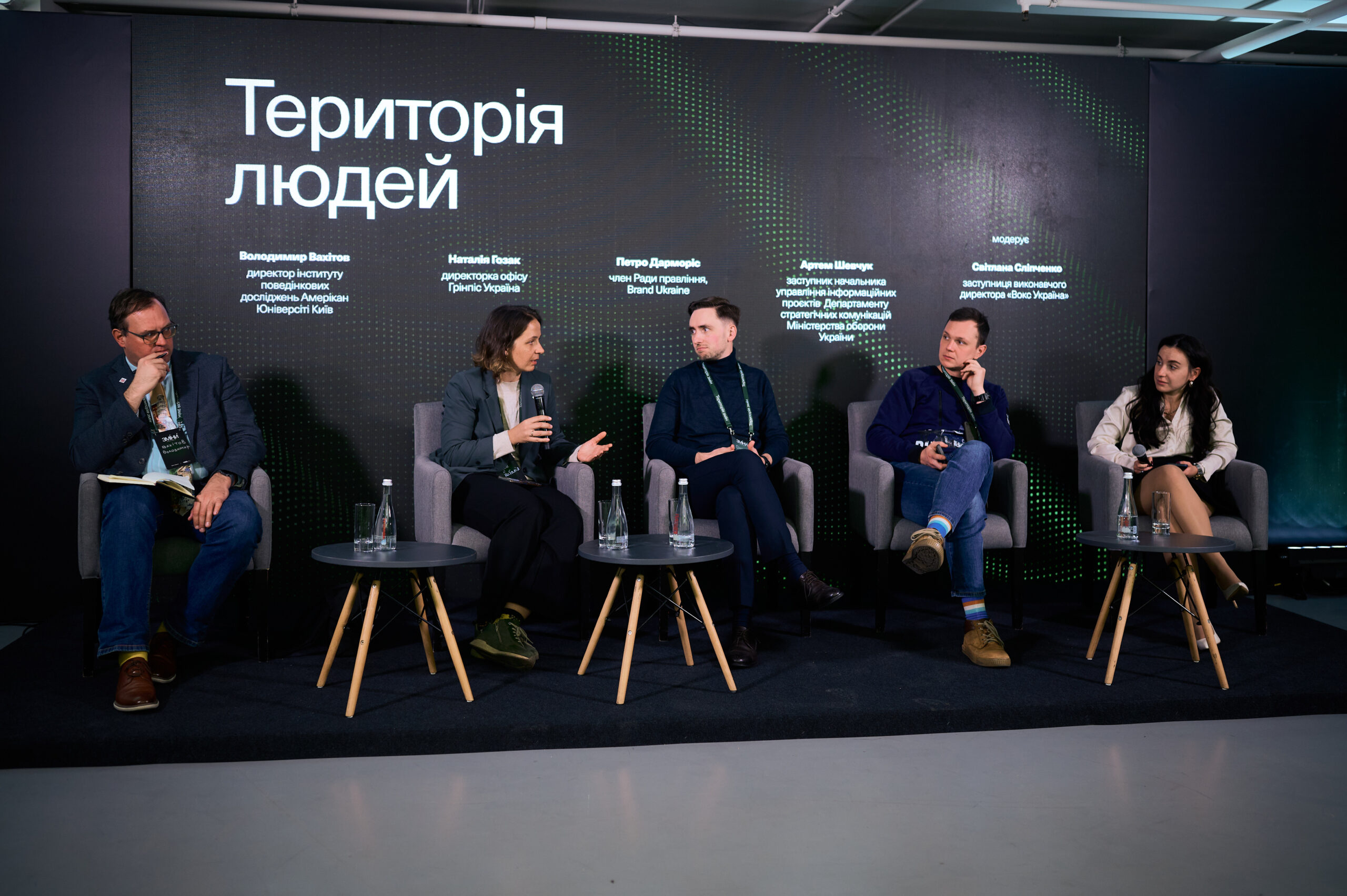
Experts of the second panel: Volodymyr Vakhitov, Natalia Gozak, Petro Darmoris, Artem Shevchuk and moderator Svitlana Slipchenko
The five ideas presented during the second panel were:
- Pay4Victory Platform. A platform that automates and simplifies the process of paying local taxes, enabling communities to effectively manage tax revenues. Author: Nazar Podolchak, Director of the Science Park at the National University “Lviv Polytechnic”.
- Production of Pellets and Fuel Briquettes. A practical and cost-effective solution that allows the connection of a secondary boiler without modifying the heating system. Solid fuel boilers could provide warmth for private homes, schools, and businesses during wartime. Author: Oleksii Pavytskyi, Journalist at the online publication “Khrabro”.
- Communication Channel for Teens About the War and an Online Media Literacy Game for Adults. Author: Iryna Mishchenko, Director of the “Orc Busters” Charitable Foundation.
- Widespread Introduction of Solar Mini Power Plants in Communities. A project designed to help individual entrepreneurs and private households reduce electricity costs and ensure power supply even during disconnections from the main grid. Author: Liubava Prykolota, Journalist at the information-analytical portal “Accent”
- A mobile application that enables easy monitoring of local budget allocations and city project implementations, ensuring financial transparency and accessibility for every resident of Ukraine. Author: Khrystyna Melnyk, Journalist at ilikenews.com
Nazar Podolchak’s idea for the Pay4Victory platform aims to provide citizens with an easy way to check debts, make utility and tax payments, and support local projects. This platform is already being implemented in several communities with promising results. While the experts recognize its significant potential, they also expressed concerns about data security. Volodymyr Vakhitov stressed the importance of adhering to personal data protection standards, particularly to mitigate the risk of public pressure on debtors. Furthermore, the experts underscored the need for collaboration with tax authorities to ensure proper administration of the platform’s information.
The organizers presented the ideas of Oleksii Pavytskyi, Iryna Mishchenko, Liubava Prykolota, and Khrystyna Melnyk, as the authors were unable to attend.
Oleksii’s idea focused on establishing the production of pellets and fuel briquettes, as solid fuel boilers could provide heating for private homes, schools, and businesses during wartime. The experts acknowledged the project’s potential but emphasized the importance of a systematic approach to ensure its sustainability. Petro Darmoris pointed out that while some large agribusinesses already operate small-scale production facilities, it is crucial to support smaller producers by fostering collaboration. Nataliia Hozak added that small-scale, region-specific solutions could prove both practical and promising.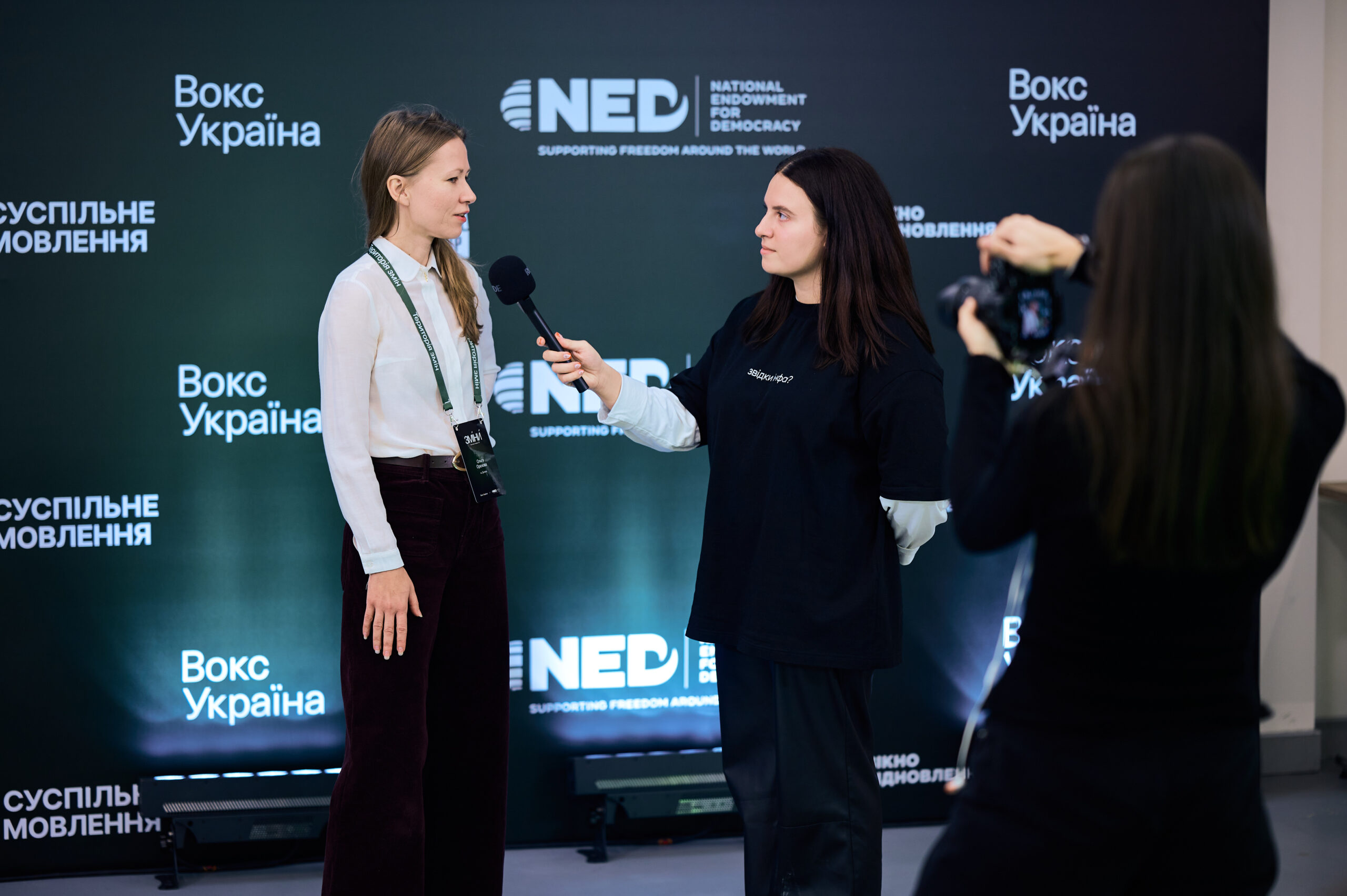
Iryna Mishchenko proposed creating a communication channel tailored for teenagers, presenting war-related events in a way that aligns with their level of perception, avoids clickbait, and calmly explains the context. She also suggested developing an online media literacy game for adults. The experts agreed that media literacy programs should target both youth and adults. Regarding teenagers, Petro Darmoris stressed the role of parents and teachers in helping young people distinguish reliable information from fake news and fostering their interest in Ukraine’s development. Artem Shevchuk emphasized the critical importance of cultivating a sense of defense awareness among teenagers.
The initiative for solar mini power plants, proposed by Liubava Prykolota, aims to enhance the energy independence of communities, private households, and small businesses. The experts concurred that installing solar mini power plants is a strategically important step for communities. However, successful implementation requires substantial support from both governmental and international partners, as equipment costs remain high.
Greenpeace Ukraine, in collaboration with partners, has already implemented a similar project in the village of Horenka in the Kyiv region. After repairs to the local clinic, solar panels, heat pumps, and an energy storage system were installed, allowing the facility to operate autonomously for approximately 150 days a year. “We realized that there aren’t as many obstacles to implementing such projects if there is initiative,” noted Nataliia Hozak. Nevertheless, securing funding continues to be a major challenge.
Khrystyna Melnyk’s idea seeks to enhance transparency and accessibility in financial processes within local communities. The proposed app would allow citizens to track budget expenditures, monitor the progress of urban projects, and evaluate their effectiveness. The experts acknowledged that while the idea might not appeal to a broad audience, there is a clear public demand for greater accountability in using funds.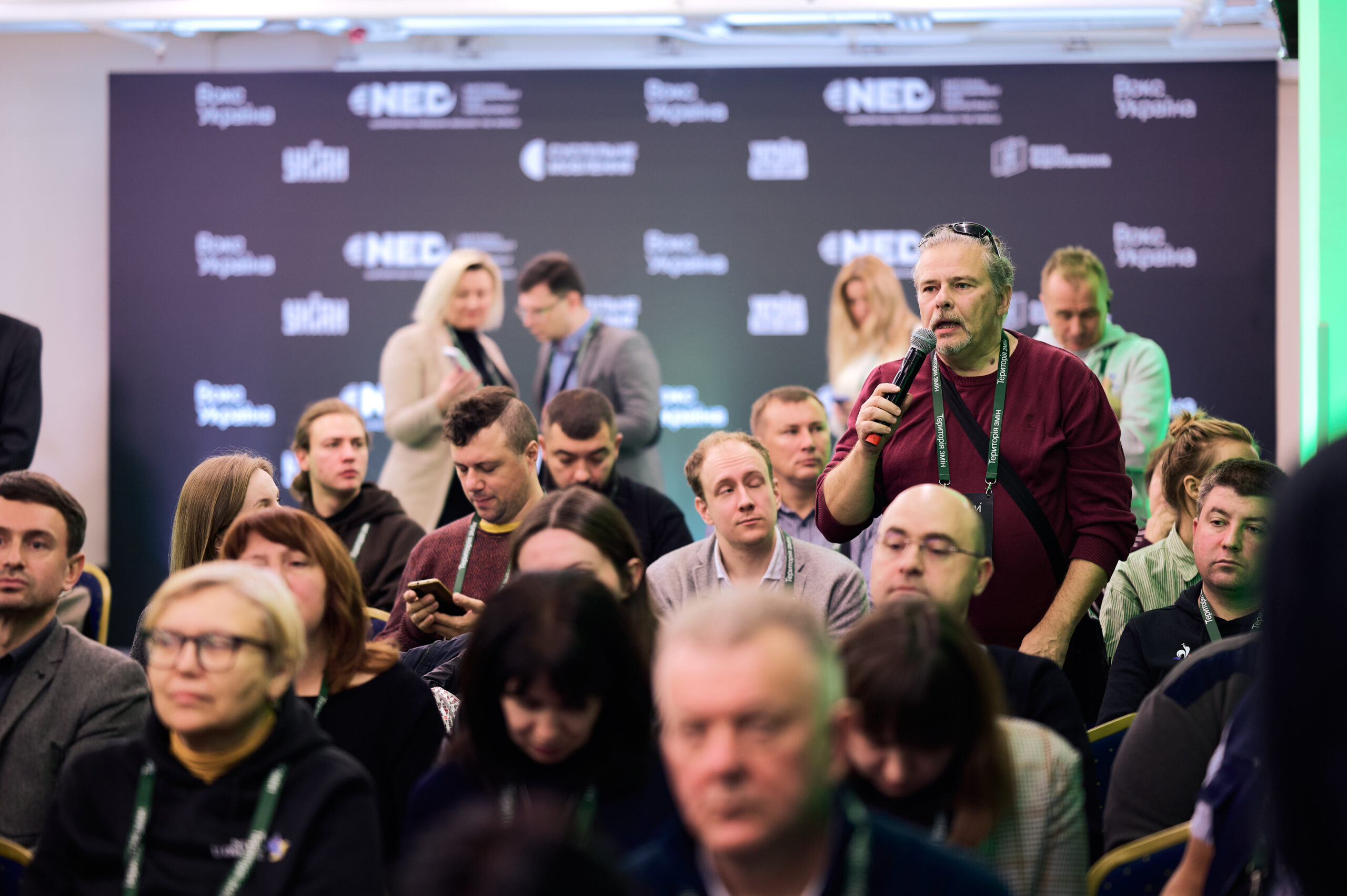
In summarizing the event, we want to emphasize that the key to change is always effort. The “Territory of Changes” participants made their steps by developing ideas, sharing them, and opening them up for discussion. “Making an effort is incredibly important, and it is what allowed everyone here today to take part in this event,” said Svitlana Slipchenko, Deputy Executive Director of Vox Ukraine, in her closing remarks. Every idea, no matter how simple, has the potential to transform the world around us.
We extend our gratitude to all participants for their active engagement, to the panelists for their deep expertise and candid advice, and to everyone present for their openness to dialogue. The “Territory of Changes” conference is just the first step. Ahead lies a wealth of opportunities to further develop and bring your ideas to life.
The event was made possible with the support of The National Endowment for Democracy (NED).
Special thanks to the media partners of the conference — Suspilne, UNIAN, Media Center Ukraine, and the Window of Recovery.
We look forward to seeing you at future events, where we will continue our collective efforts to make Ukraine a better place.
Photo: Maksym Lisovoi
Attention
The authors do not work for, consult to, own shares in or receive funding from any company or organization that would benefit from this article, and have no relevant affiliations
